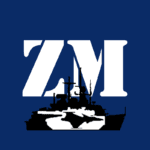Amid the historical tensions between China and Taiwan, Beijing has once again sanctioned U.S. companies over the sale of arms to Taiwan’s Armed Forces, alleging a violation of the “One China” principle. With decades of accumulated conflict and tension, last year marked the end of a framework or consensus that kept Taiwan under the “One Country, Two Systems” policy. Notably, this policy was never fully accepted by Taiwan’s governments or its society.

In this context, the conflict between the two territories has intensified, while the United States has reaffirmed its support and commitment to the island. Over the years, Washington has demonstrated its alliance with Taiwan through the approval of arms sales packages. This is based on the 1979 Taiwan Relations Act, which obligates the U.S. to provide Taiwan with the means necessary for its defense, despite the absence of formal diplomatic ties between the two.
From China’s perspective, the sanctions imposed by its government are entirely reasonable, as it views these arms sales as a violation of its sovereignty, its Anti-Foreign Sanctions Law, and the 1982 Joint Communiqué signed with the U.S. In official statements, spokesperson Mao Ning expressed China’s concern over what it sees as an undermining of its policies and national interests.
As part of this scenario, the U.S. has consistently approved multi-billion-dollar aid packages to Taiwan, authorizing arms sales to bolster its military forces. In response, the Chinese government has sanctioned not only the companies involved but also their representatives. These sanctions often include freezing the affected companies’ assets and banning their executives from entering the country.

Notable examples of these sanctions include those imposed in 2019, following the U.S. announcement of a $2.22 billion arms sale plan, and in 2023, when Lockheed Martin and Northrop Grumman were once again sanctioned. Last year, these measures escalated: in January, companies such as BAE Systems Land and Armament, ViaSat, Alliant Techsystems Operations, Data Link Solutions, and AeroVironment were sanctioned after the U.S. approved a $300 million arms package; in May, sanctions targeted 12 companies and 10 executives, including General Dynamics, Raytheon, Boeing, and Northrop Grumman; finally, in December, seven more companies were sanctioned, among them Insitu Inc. (a Boeing subsidiary), Raytheon Canada, Raytheon Australia, and Hudson Technologies Co., following the approval of a $571.3 million defense package and a $385 million arms batch.
The escalation of sanctions and arms sales reflects the growing tension between China and the United States over Taiwan, creating an uncertain outlook for regional and global stability.
You may also like: Another stealth aircraft flight has been recorded, possibly one of the future sixth-generation fighters of the Chinese Air Force



